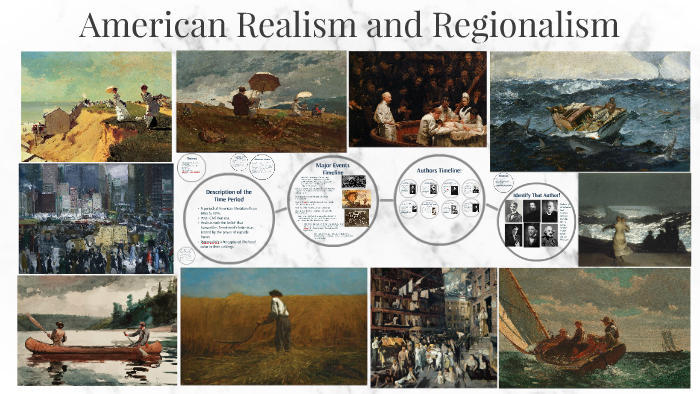In the dynamic world of publishing, authors face myriad challenges, particularly when it comes to effectively marketing their books. As a debut author, the journey from manuscript to reader’s hands can feel daunting, especially in a crowded market where visibility is key to sales success. Collaborating with a book marketing firm offers a solution to navigate this complex landscape. However, to maximize the benefits of this partnership, it is essential for authors to set and achieve realistic sales goals. This article delves into the significance of establishing achievable objectives and provides practical steps for authors to work effectively with marketing firms to realize their sales potential.
Understanding the Role of a Book Marketing Firm
Before diving into goal setting, it is crucial to comprehend what a Top Book Marketing Trends 2024 firm can do for an author. These firms specialize in promoting books, utilizing a blend of traditional and digital marketing strategies tailored to the unique needs of each author and their specific genre. Their expertise encompasses a wide range of services, including social media marketing, email campaigns, content creation, public relations, and targeted advertising.
The primary aim of a book marketing firm is to enhance the visibility of an author’s work, thereby increasing readership and sales. However, the success of this partnership is greatly influenced by the clarity of the author’s goals. When authors collaborate with a marketing firm, they should approach the relationship as a team effort, where both parties contribute to achieving the desired outcomes. Setting realistic sales goals is the first step in ensuring that this collaboration yields positive results.
The Importance of Setting Realistic Sales Goals
Sales goals are not just numbers; they represent an author’s aspirations and benchmarks for success. However, it is vital for authors to set goals that are both ambitious and attainable. Realistic sales goals serve multiple purposes. They provide a clear direction for marketing efforts, facilitate tracking of progress, and help maintain motivation throughout the marketing campaign.
In the context of book marketing, setting realistic goals involves understanding various factors, including the author’s genre, target audience, and market conditions. For instance, a debut author in a niche genre may have different sales expectations compared to an established author with a broad readership. By setting realistic goals, authors can avoid the pitfalls of disappointment and frustration that often accompany unattainable targets.
Furthermore, realistic goals foster a sense of achievement. When authors set incremental milestones, they can celebrate small victories along the way, reinforcing their commitment to the marketing process. This positive reinforcement can be a powerful motivator, encouraging authors to stay engaged with their marketing efforts.
Analyzing the Current Market Landscape
To set realistic sales goals, authors must first analyze the current market landscape. This involves conducting thorough research to understand the genre, target audience, and competitive landscape. Authors should begin by examining similar books within their genre to gauge sales performance and reader engagement. Platforms such as Amazon, Goodreads, and BookBub can provide valuable insights into book rankings, reviews, and sales figures.
Additionally, understanding the target audience is crucial in this analysis. Who are the readers that would be most interested in the author’s book? What are their preferences, habits, and purchasing behaviors? By gathering this information, authors can establish a clearer picture of their potential market and make informed decisions regarding their sales goals.
It is also essential to consider external factors that may influence sales. Seasonal trends, cultural events, or recent developments in the publishing industry can all impact reader interest and purchasing behavior. By staying informed about these trends, authors can adjust their goals accordingly, ensuring they remain relevant and achievable.
Collaborating with the Marketing Firm to Define Goals
Once authors have a solid understanding of the market landscape, the next step is to collaborate with their book marketing firm to define specific sales goals. This collaborative process is crucial, as it ensures that both parties are aligned in their expectations and strategies.
During initial discussions, authors should share their vision for the book and any preliminary thoughts on sales targets. The marketing firm will bring its expertise to the table, providing insights into what is realistic based on current market conditions and similar campaigns. This dialogue is vital for establishing a shared understanding of success.
When setting goals, it is beneficial to utilize the SMART criteria—Specific, Measurable, Achievable, Relevant, and Time-bound. For instance, instead of stating a vague goal such as “I want to sell more books,” authors should aim for a specific target like “I want to sell 1,000 copies in the first three months post-launch.” This approach not only clarifies the goal but also provides a clear timeframe for achieving it.
Authors should also consider breaking down larger goals into smaller, actionable steps. For example, if the ultimate goal is to sell 1,000 copies, authors could set monthly targets of 300 copies, allowing for adjustments in strategy if needed. By outlining these incremental goals, authors can maintain focus and track their progress effectively.
Developing a Comprehensive Marketing Strategy
Setting realistic sales goals is only part of the equation; authors must also develop a comprehensive marketing strategy to achieve those goals. This is where the expertise of a book marketing firm truly shines. Together, authors and marketers can devise a plan that encompasses various marketing channels and tactics tailored to the author’s unique needs.
A well-rounded marketing strategy may include social media promotion, email marketing, book launch events, influencer collaborations, and targeted advertising. Each of these elements should align with the established sales goals. For instance, if the goal is to generate buzz around a book launch, the marketing plan might prioritize social media campaigns and virtual events to maximize visibility.
In addition to defining tactics, authors and marketing firms should also allocate budgets for each aspect of the marketing strategy. Financial considerations play a crucial role in determining what is feasible and can significantly impact the effectiveness of the marketing efforts. A clear budget allows for more strategic decision-making and ensures that resources are allocated where they will have the greatest impact.
Measuring Progress and Adjusting Strategies
As the marketing campaign unfolds, it is essential for authors to measure their progress against the established sales goals. Regular tracking of sales figures, website traffic, social media engagement, and other relevant metrics provides insight into what is working and what needs adjustment.
Collaboration with the marketing firm is crucial during this phase. Professional marketers will have tools and analytics to monitor campaign performance, allowing authors to gain a comprehensive understanding of their reach and effectiveness. This data-driven approach enables authors to make informed decisions about their marketing strategies, whether it involves doubling down on successful tactics or pivoting in response to underperforming areas.
When evaluating progress, authors should remain flexible and open to adjustments. The publishing landscape can be unpredictable, and what worked at the beginning of a campaign may not yield the same results later on. Being adaptable is key to achieving sales goals, as it allows authors to respond proactively to changes in market conditions or reader preferences.
Celebrating Milestones and Achievements
Achieving sales goals, whether large or small, is a cause for celebration. Recognizing milestones fosters a sense of accomplishment and motivates authors to continue their marketing efforts. It is essential for authors to take time to reflect on their progress and celebrate their achievements, no matter how minor they may seem.
Celebrating milestones can take various forms. Authors may choose to share their successes on social media, thanking their readers and supporters for their contributions. Hosting a virtual or in-person event to celebrate the launch of the book can also create a sense of community and connection with readers. These celebrations not only acknowledge the author’s hard work but also help maintain engagement with the audience.
Additionally, authors should take the time to evaluate what worked well throughout the marketing process. By analyzing successful strategies, authors can replicate those successes in future campaigns. Understanding the elements that resonated with readers will be invaluable as authors continue to promote their work and build their careers.
Planning for Future Releases
While the focus may initially be on achieving sales goals for a debut book, it is essential for authors to think ahead. The skills and insights gained from working with a book marketing firm can be applied to future releases, ensuring continued growth and success.
Authors should collaborate with their marketing firms to develop a long-term marketing plan that encompasses future projects. This plan should build on the successes and lessons learned from previous campaigns, adapting strategies to reflect the evolving publishing landscape.
Planning for future releases also allows authors to cultivate a loyal readership. Engaging with readers during the marketing process and keeping them informed about upcoming projects fosters a sense of connection. Authors can build anticipation for their next book by providing sneak peeks, sharing behind-the-scenes content, and involving readers in the creative process.
Conclusion
Working with a book marketing firm can be a transformative experience for authors seeking to navigate the complexities of the publishing world. By setting and achieving realistic sales goals, authors can create a roadmap for success that guides their marketing efforts and maximizes their potential.
Through collaboration, analysis of the market landscape, and the development of comprehensive marketing strategies, authors can establish a clear direction for their campaigns. Measuring progress and celebrating milestones keeps motivation high, while planning for future releases ensures that the momentum continues.
In a competitive industry, the partnership between authors and book marketing firms is a powerful tool for turning aspirations into achievements. By leveraging the expertise of marketing professionals and focusing on realistic sales goals, authors can enhance their visibility, reach a wider audience, and ultimately achieve the success they envision for their literary careers.




